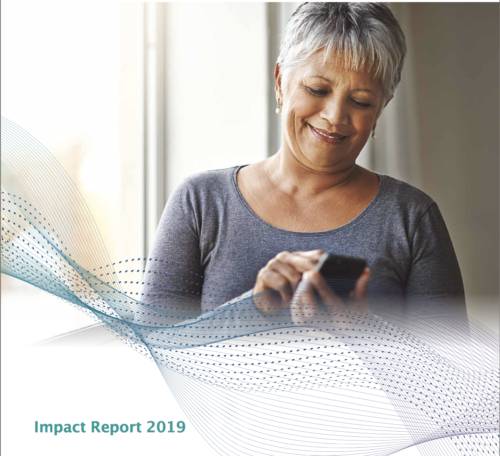Tech challenge launched to offer digital support during COVID-19 outbreak

- Tech challenge launched to combat effects of social isolation;
- Innovators urged to find ways to deliver mental health and social care support digitally;
- £500,000 worth of Government funding available to start work within weeks.
People confined at home because of Coronavirus (Covid-19) could soon benefit from new technology to combat the effects of social isolation.
Funding is being made available by NHSX through ‘Techforce 19’, for innovators who can find digital ways to support those who need help, including people requiring mental health support and those with social care needs.
The technology is intended to support those who may be most affected by the consequences of remaining housebound for long periods of time.
Announcing the fund, Matt Hancock, Secretary of State for Health and Social Care, said:
“If people cannot leave the house, we need to quickly find ways to bring support to them and today I am calling on the strength of our innovative technology sector to take on this challenge. Techforce19 will mobilise the UK’s incredible reservoir of talent to develop simple, accessible tools that can be rolled out quickly and help tackle the effect of social isolation.”
The programme is being launched by NHSX and is being managed by GovTech venture firm PUBLIC and the AHSN Network.
Piers Ricketts, Chair of the AHSN Network, said:
“The AHSN Network is dedicated to furthering successful collaborations between innovators and the health and social care system. Our well-connected teams throughout the country are ready to support NHSX and PUBLIC with this important call out to industry.
I encourage all innovators with a relevant idea, or with existing technology which could be adapted or scaled, to apply to this programme and help support the most vulnerable and isolated during this difficult time.”
In total, there is £500,000 available to bid for – with funding of up to £25,000 per company available to innovators with solutions that could be deployed at scale in the next few weeks. Specifically, the programme is looking for digital solutions that can be deployed quickly, and could include:
- Providing remote social care;
- Optimisation of the care and volunteer sector;
- Messaging and communication;
- Mental health support – for example through peer communities or self-management tools;
- Any other solutions to ease pressures on services and people during this time.
Matthew Gould, Chief Executive of NHSX, said:
“Tech can play an important role in helping the country deal with the challenges created by the Coronavirus. This competition is focussed on the problems created by isolation, which lend themselves to digital solutions. It will allow NHSX to accelerate the development of those solutions, so within weeks they can help those in isolation suffering from loneliness, mental health issues and other problems.”
The Government has strongly advised everyone in the country – but especially those aged 70 or over, people with underlying medical conditions or pregnant women – to reduce social interaction to help minimise the spread of the virus. Those considered most at risk of having serious complications from the virus – for instance people receiving treatment for cancer – have also been asked to stay at home for 12 weeks as part of efforts to ‘shield’ them from the virus.”
Techforce19 is a new challenge, open to innovative tech companies in this country who will compete to develop accessible digital tools to support people who are staying at home over the coming weeks and months.
For more information on the programme and how to apply, visit Techforce19.uk.
Recruitment for innovators taking part in the challenge programme opens today, Monday 23 March. The closing date for applications is 1 April 2020.
Share this Post

